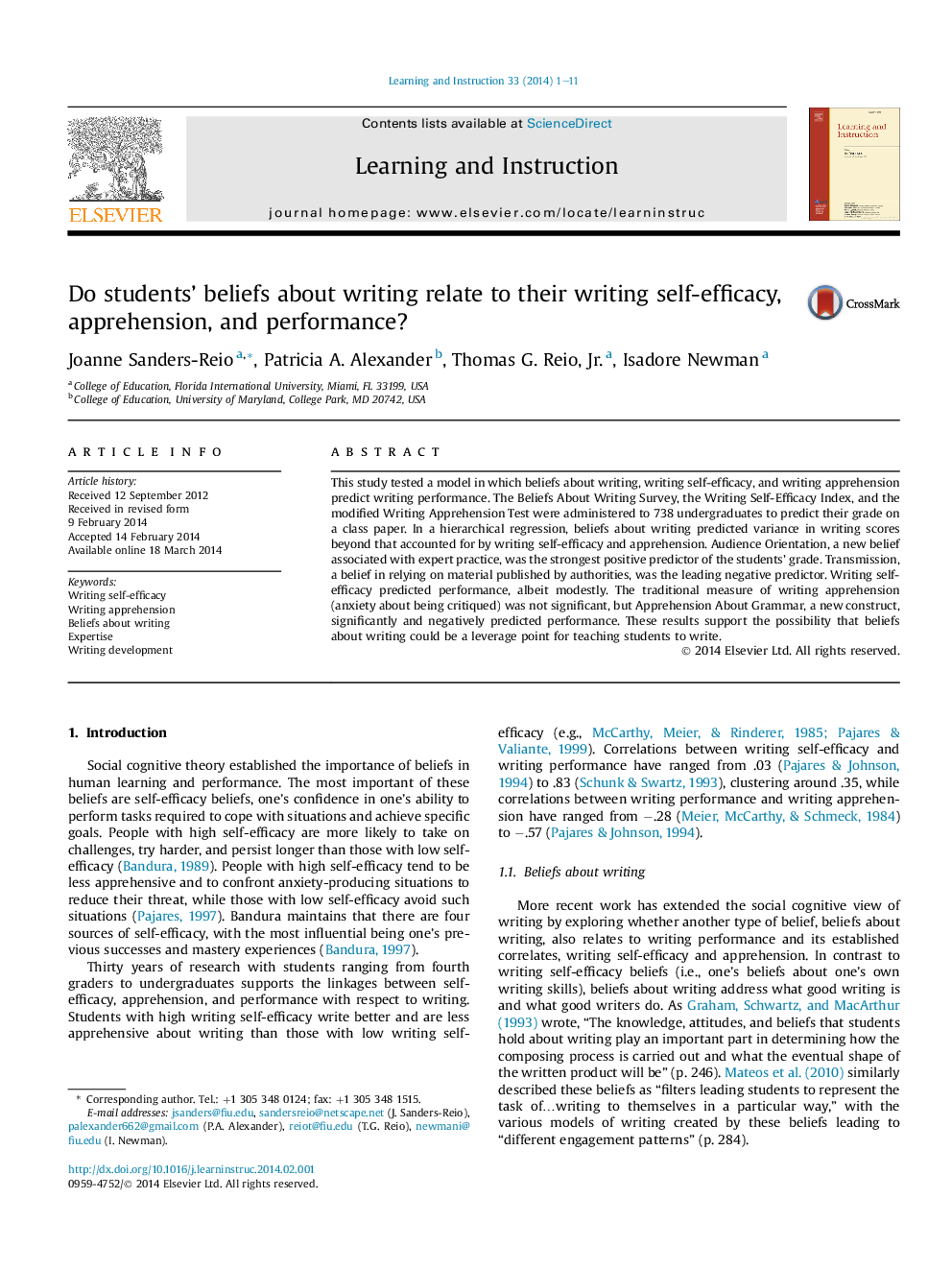| Article ID | Journal | Published Year | Pages | File Type |
|---|---|---|---|---|
| 365555 | Learning and Instruction | 2014 | 11 Pages |
•The participants' beliefs about writing predicted unique variance in their writing performance.•Their beliefs about writing related to their writing self-efficacy and writing apprehension.•Some beliefs about writing were adaptive, while others were maladaptive.•The belief in focusing on one's audience was the most adaptive belief in the study.•Apprehension about mechanical errors explained unique negative variance in student writing.
This study tested a model in which beliefs about writing, writing self-efficacy, and writing apprehension predict writing performance. The Beliefs About Writing Survey, the Writing Self-Efficacy Index, and the modified Writing Apprehension Test were administered to 738 undergraduates to predict their grade on a class paper. In a hierarchical regression, beliefs about writing predicted variance in writing scores beyond that accounted for by writing self-efficacy and apprehension. Audience Orientation, a new belief associated with expert practice, was the strongest positive predictor of the students' grade. Transmission, a belief in relying on material published by authorities, was the leading negative predictor. Writing self-efficacy predicted performance, albeit modestly. The traditional measure of writing apprehension (anxiety about being critiqued) was not significant, but Apprehension About Grammar, a new construct, significantly and negatively predicted performance. These results support the possibility that beliefs about writing could be a leverage point for teaching students to write.
